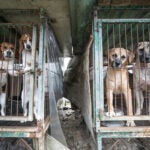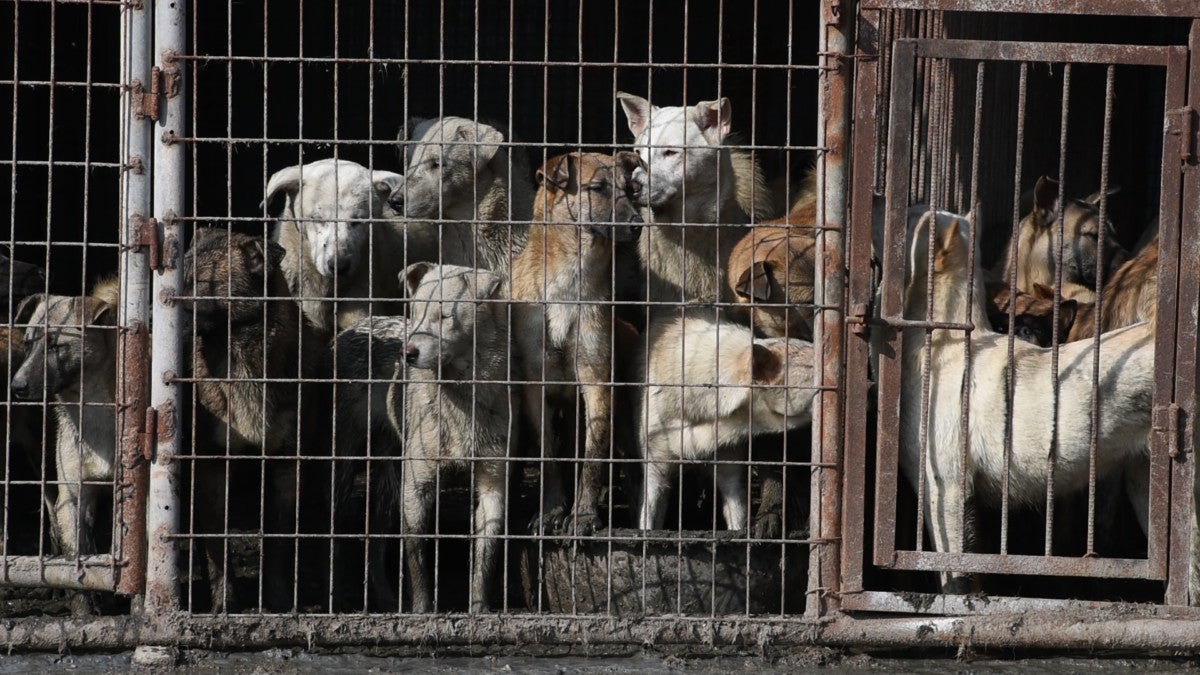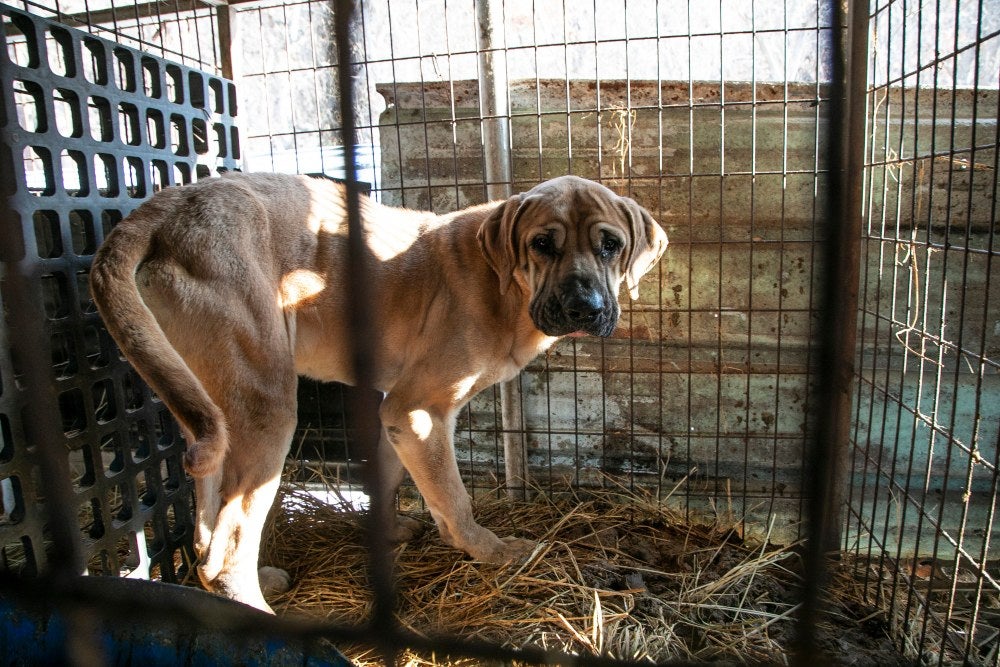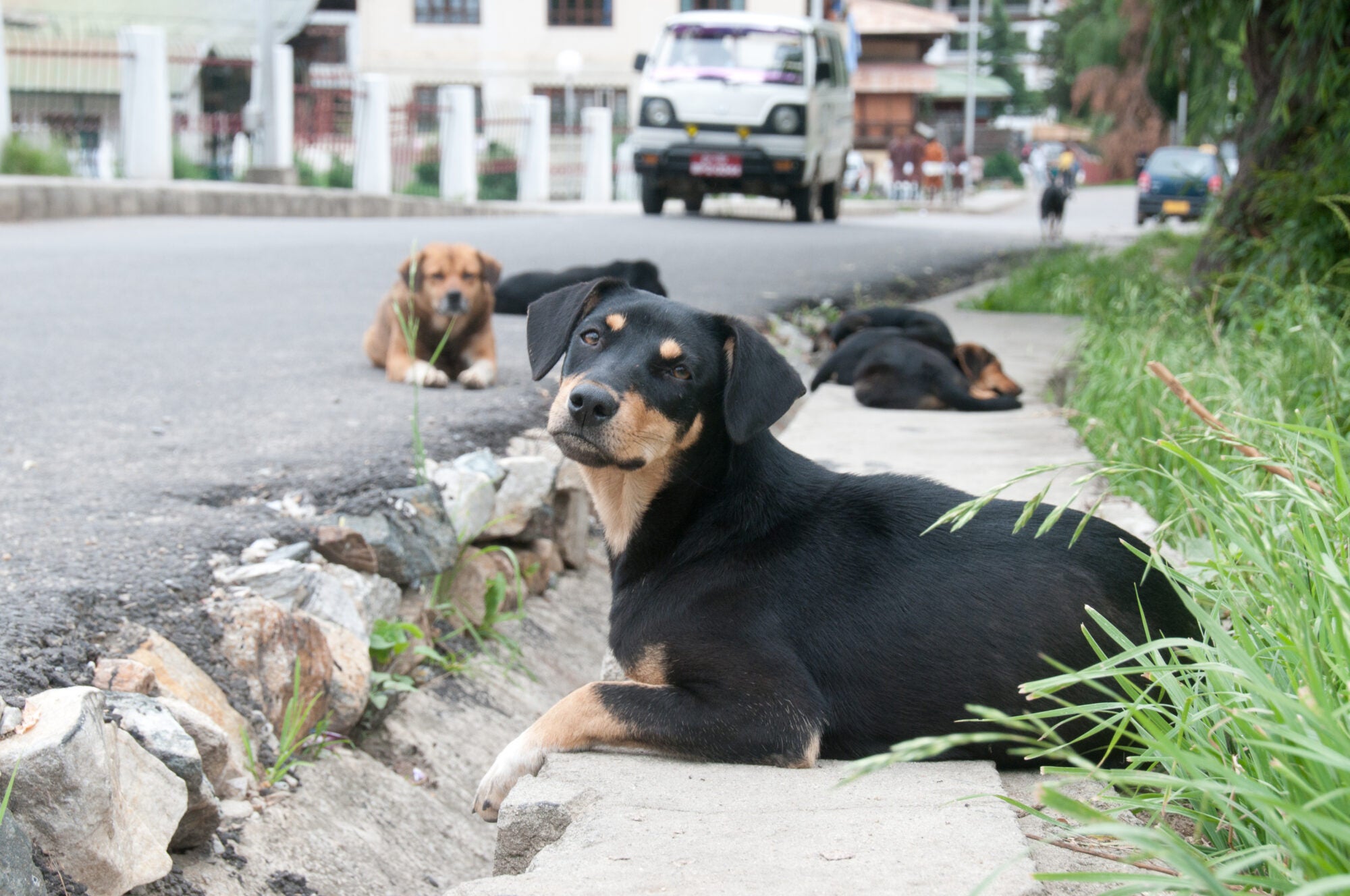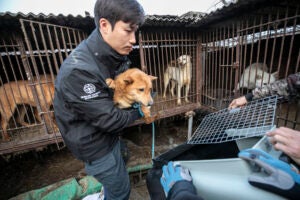
SEOUL―Seventy-three year old Mr Yang in South Korea’s Chungcheong province has become the latest dog meat farmer in the country to join Humane Society International/Korea’s Models for Change program as part of the charity’s efforts to end the dog meat industry. Through working with HSI/Korea, Mr Yang is leaving dog meat farming behind him and transitioning to growing cabbages and other crops instead. The nearly 200 dogs and puppies on his farm, who were destined for slaughter, will instead be transported to the United States and Canada where they will begin their search for adoptive families.
The closure comes at a time of increasing public and political support for ending the dog meat industry. Last year, First lady Kim Keon-hee openly called for a ban, and latest opinion surveys show that most South Koreans (85%) don’t eat dog meat and 56% support a ban. In December 2021, the government formed a task force to bring forward recommendations on the issue, but after repeated delays, HSI/Korea is urging the government to begin a phase out program mirroring HSI’s Models for Change.
Mr Yang has farmed dogs for human consumption for 27 years in the city of Asan-si, but now agrees that the best solution for the dog meat industry in South Korea is a phase out, and he wants to leave. His farm, unlike many in the country, is legally registered, but he believes it has no future.
Mr Yang says: “In the early years of the dog meat industry, no-one reported dog meat farms for violations or criticised the industry. But as time has passed, animal groups like HSI/Korea have appeared and the world is changing, so are Korean people. I’m a member of the dog farmers association and I know how the Dog Meat Task Force is going. The compensation and phase-out period are the issues now. But regardless of the Task Force’s recommendation, I was planning to leave the industry in a few years anyway so when I talked with HSI/Korea, I knew it was a good opportunity to leave now. I plan to do cabbage farming after this and share my crops with local people. HSI will rescue the animals, and I will help the people with my cabbages.”
Launched in 2015, Models for Change sees HSI/Korea work cooperatively with farmers like Mr Yang who want to exit the industry, and help them transition to humane, alternative livelihoods.
Sangkyung Lee, HSI/Korea’s End Dog Meat campaign manager, says: “Many of the dogs on this farm are clearly traumatised from their experience in the dog meat industry, and they will need all the love and patience we can give them to start to heal. But farmers like Mr Yang are symbols of change in South Korea, because a new generation of animal lovers like me don’t wish to see this suffering continue. I hope that the government listens, and our Models for Change program is showing there is a desire for change and a way to a new future where dogs are only friends, not food.”
This is the 18th dog meat farm permanently closed by HSI/Korea, resulting in the rescue of more than 2,700 dogs since the program began who have found adoptive families in the United States, Canada, the United Kingdom, the Netherlands and a small number in South Korea.
Mr Yang is glad that the dogs on his farm will now have a chance of a happy future. He said: “While working with HSI/Korea, I was surprised and enlightened by the way the team interacts with the dogs. Even with their clothes covered in dog poop, they kept smiling and talking kindly to the dogs without any displeasure. I was somewhat shocked. I got to know that HSI really values animals much more than me who has handled dogs for nearly 30 years. I feel happy that these dogs will go to a good place and I don’t feel good to see any of them dying. I feel sorry for them.”
Fast facts:
- An estimated up to 1 million dogs are bred and confined in appalling conditions on thousands of farms across South Korea to be killed for human consumption.
- The dogs suffer immensely both physically and mentally, spending their entire lives in small, barren, wire cages without proper food, water, stimulation, comfort, shelter or veterinary care. Death is by electrocution.
- HSI/Korea is the Seoul office of international animal protection charity HSI that campaigns across Asia (China, Indonesia, South Korea, India and Viet Nam) to end the dog meat trade.
Download video and photos of the farm closure and rescueand of the farm pre-closure
ENDS
Media contact: Wendy Higgins, director of international media ; whiggins@hsi.org

